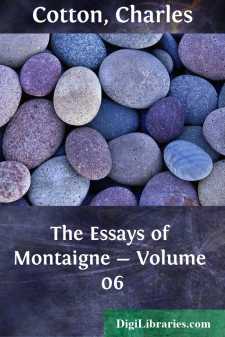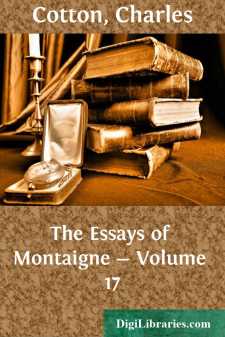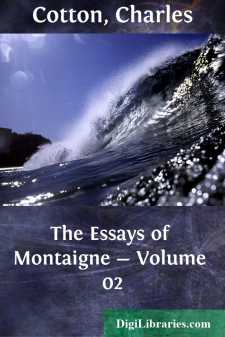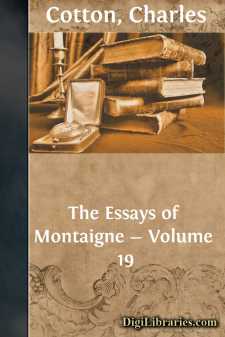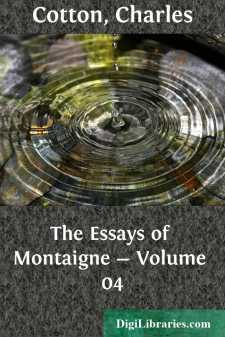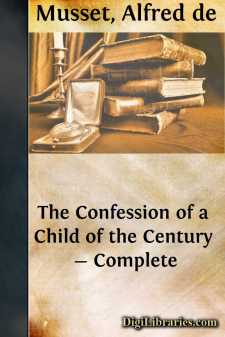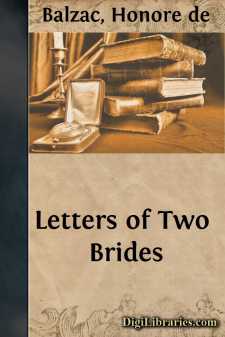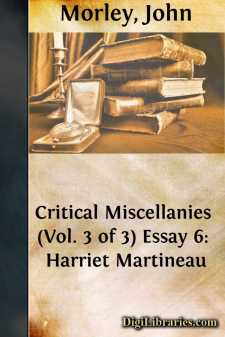Categories
- Antiques & Collectibles 13
- Architecture 36
- Art 48
- Bibles 22
- Biography & Autobiography 813
- Body, Mind & Spirit 142
- Business & Economics 28
- Children's Books 17
- Children's Fiction 14
- Computers 4
- Cooking 94
- Crafts & Hobbies 4
- Drama 346
- Education 46
- Family & Relationships 57
- Fiction 11829
- Games 19
- Gardening 17
- Health & Fitness 34
- History 1377
- House & Home 1
- Humor 147
- Juvenile Fiction 1873
- Juvenile Nonfiction 202
- Language Arts & Disciplines 88
- Law 16
- Literary Collections 686
- Literary Criticism 179
- Mathematics 13
- Medical 41
- Music 40
- Nature 179
- Non-Classifiable 1768
- Performing Arts 7
- Periodicals 1453
- Philosophy 64
- Photography 2
- Poetry 896
- Political Science 203
- Psychology 42
- Reference 154
- Religion 513
- Science 126
- Self-Help 84
- Social Science 81
- Sports & Recreation 34
- Study Aids 3
- Technology & Engineering 59
- Transportation 23
- Travel 463
- True Crime 29
The Essays of Montaigne - Volume 06
by: Charles Cotton
Categories:
Description:
Excerpt
Having considered the proceedings of a painter that serves me, I had a mind to imitate his way. He chooses the fairest place and middle of any wall, or panel, wherein to draw a picture, which he finishes with his utmost care and art, and the vacuity about it he fills with grotesques, which are odd fantastic figures without any grace but what they derive from their variety, and the extravagance of their shapes. And in truth, what are these things I scribble, other than grotesques and monstrous bodies, made of various parts, without any certain figure, or any other than accidental order, coherence, or proportion?
"Desinit in piscem mulier formosa superne."
["A fair woman in her upper form terminates in a fish."
—Horace, De Arte Poetica, v. 4.]
In this second part I go hand in hand with my painter; but fall very short of him in the first and the better, my power of handling not being such, that I dare to offer at a rich piece, finely polished, and set off according to art. I have therefore thought fit to borrow one of Estienne de la Boetie, and such a one as shall honour and adorn all the rest of my work—namely, a discourse that he called 'Voluntary Servitude'; but, since, those who did not know him have properly enough called it "Le contr Un." He wrote in his youth,—["Not being as yet eighteen years old."—Edition of 1588.] by way of essay, in honour of liberty against tyrants; and it has since run through the hands of men of great learning and judgment, not without singular and merited commendation; for it is finely written, and as full as anything can possibly be. And yet one may confidently say it is far short of what he was able to do; and if in that more mature age, wherein I had the happiness to know him, he had taken a design like this of mine, to commit his thoughts to writing, we should have seen a great many rare things, and such as would have gone very near to have rivalled the best writings of antiquity: for in natural parts especially, I know no man comparable to him. But he has left nothing behind him, save this treatise only (and that too by chance, for I believe he never saw it after it first went out of his hands), and some observations upon that edict of January—[1562, which granted to the Huguenots the public exercise of their religion.]—made famous by our civil-wars, which also shall elsewhere, peradventure, find a place. These were all I could recover of his remains, I to whom with so affectionate a remembrance, upon his death-bed, he by his last will bequeathed his library and papers, the little book of his works only excepted, which I committed to the press. And this particular obligation I have to this treatise of his, that it was the occasion of my first coming acquainted with him; for it was showed to me long before I had the good fortune to know him; and the first knowledge of his name, proving the first cause and foundation of a friendship, which we afterwards improved and maintained, so long as God was pleased to continue us together, so perfect, inviolate, and entire, that certainly the like is hardly to be found in story, and amongst the men of this age, there is no sign nor trace of any such thing in use; so much concurrence is required to the building of such a one, that 'tis much, if fortune bring it but once to pass in three ages.
There is nothing to which nature seems so much to have inclined us, as to society; and Aristotle , says that the good legislators had more respect to friendship than to justice. Now the most supreme point of its perfection is this: for, generally, all those that pleasure, profit, public or private interest create and nourish, are so much the less beautiful and generous, and so much the less friendships, by how much they mix another cause, and design, and fruit in friendship, than itself....


